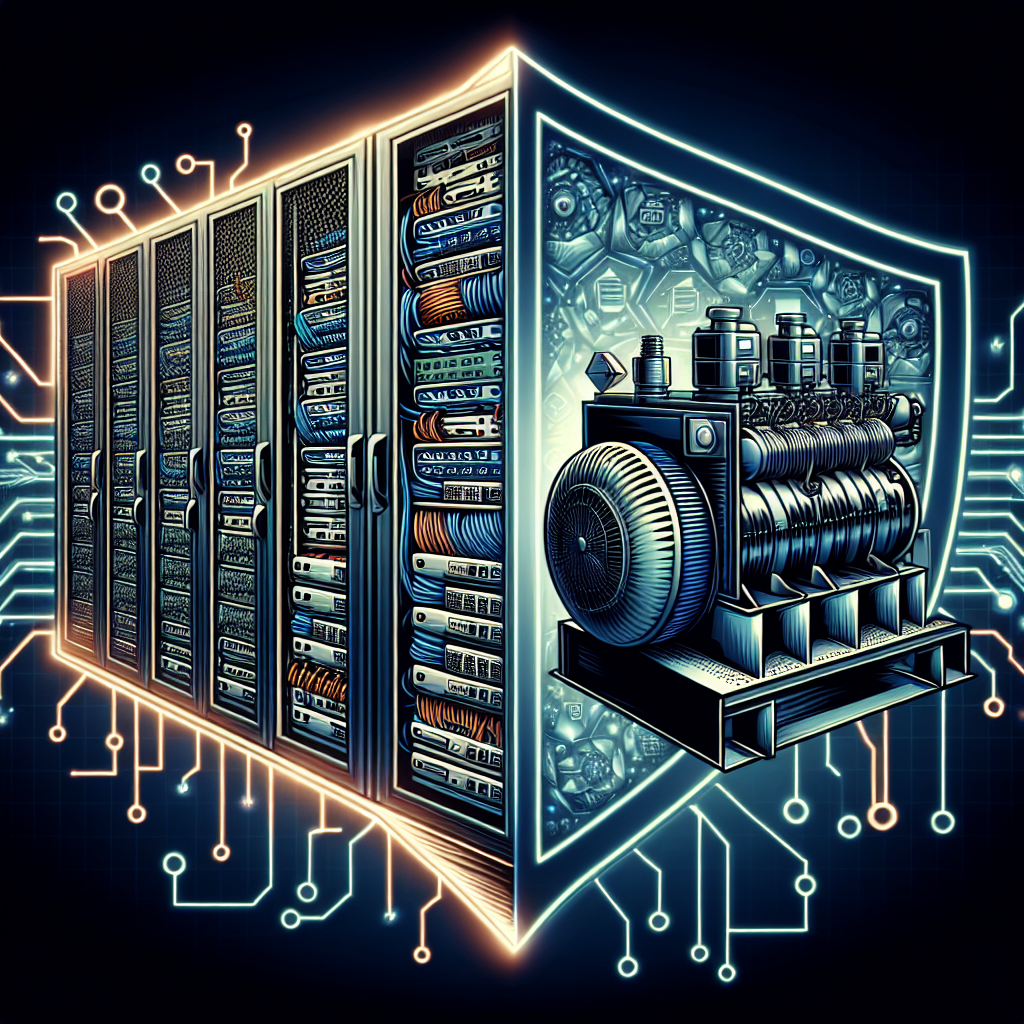In today’s digital age, data centers play a crucial role in storing and processing vast amounts of information for businesses, governments, and individuals. With the increasing reliance on data centers, ensuring their security and continuity of operations is paramount. One key component of data center security is backup power, specifically generator systems.
Data centers are vulnerable to power outages due to various reasons such as natural disasters, equipment failures, or human error. These outages can result in costly downtime, data loss, and damage to hardware. To mitigate these risks, data centers are equipped with backup power systems, typically in the form of generators.
Generators serve as a secondary power source that kicks in automatically when the primary power supply fails. They are designed to provide uninterrupted power to critical systems, ensuring that data center operations continue without interruption. In the event of a power outage, generators can sustain operations for hours or even days until the primary power source is restored.
Understanding the role of backup power in data center security is essential for data center managers and operators. Generator systems must be properly maintained and tested regularly to ensure they are ready to function when needed. Regular maintenance includes inspecting fuel levels, checking for leaks or malfunctions, and testing the system’s ability to start and run effectively.
Moreover, data center operators must also consider factors such as fuel supply, redundancy, and scalability when designing backup power systems. Having redundant generators and fuel sources ensures that the data center can continue to operate even if one component fails. Scalability is important to accommodate the increasing power demands of a growing data center.
In addition to providing uninterrupted power, generator systems also play a role in data center security by ensuring that critical systems such as surveillance cameras, access control systems, and fire suppression systems remain operational during a power outage. This helps to maintain the overall security and integrity of the data center.
In conclusion, the role of backup power in data center security cannot be overstated. Generator systems are essential components of data center infrastructure, providing the necessary power to keep operations running smoothly in the event of a power outage. Data center operators must prioritize the maintenance and testing of backup power systems to ensure the security and continuity of operations. By understanding the importance of generator systems, data center managers can effectively safeguard their facilities against power disruptions and ensure the reliability of their services.


Leave a Reply